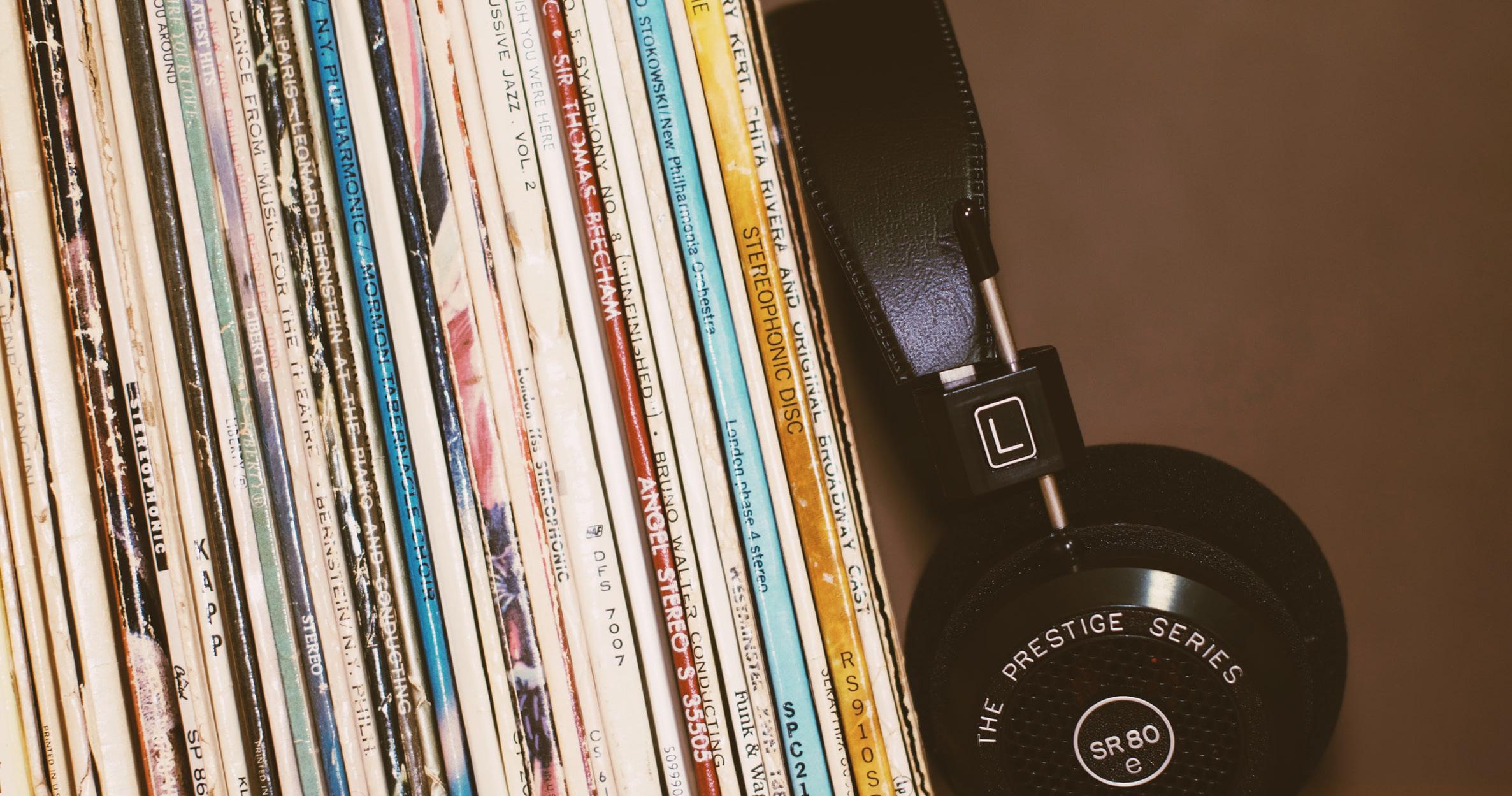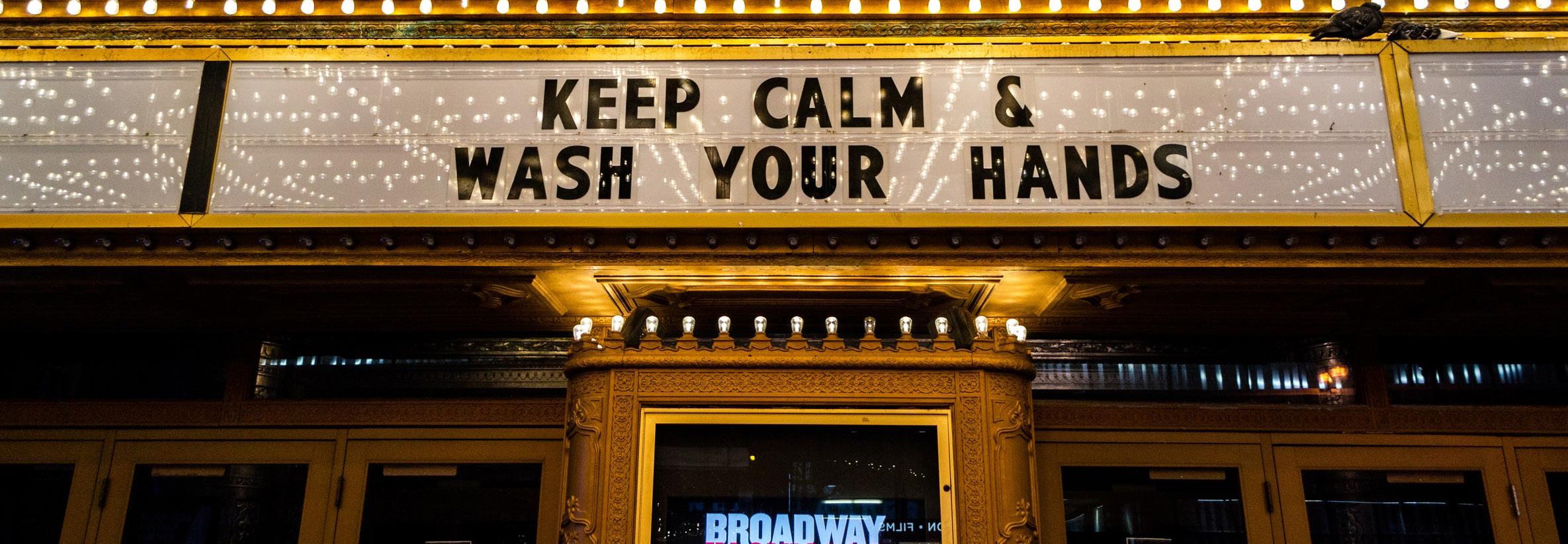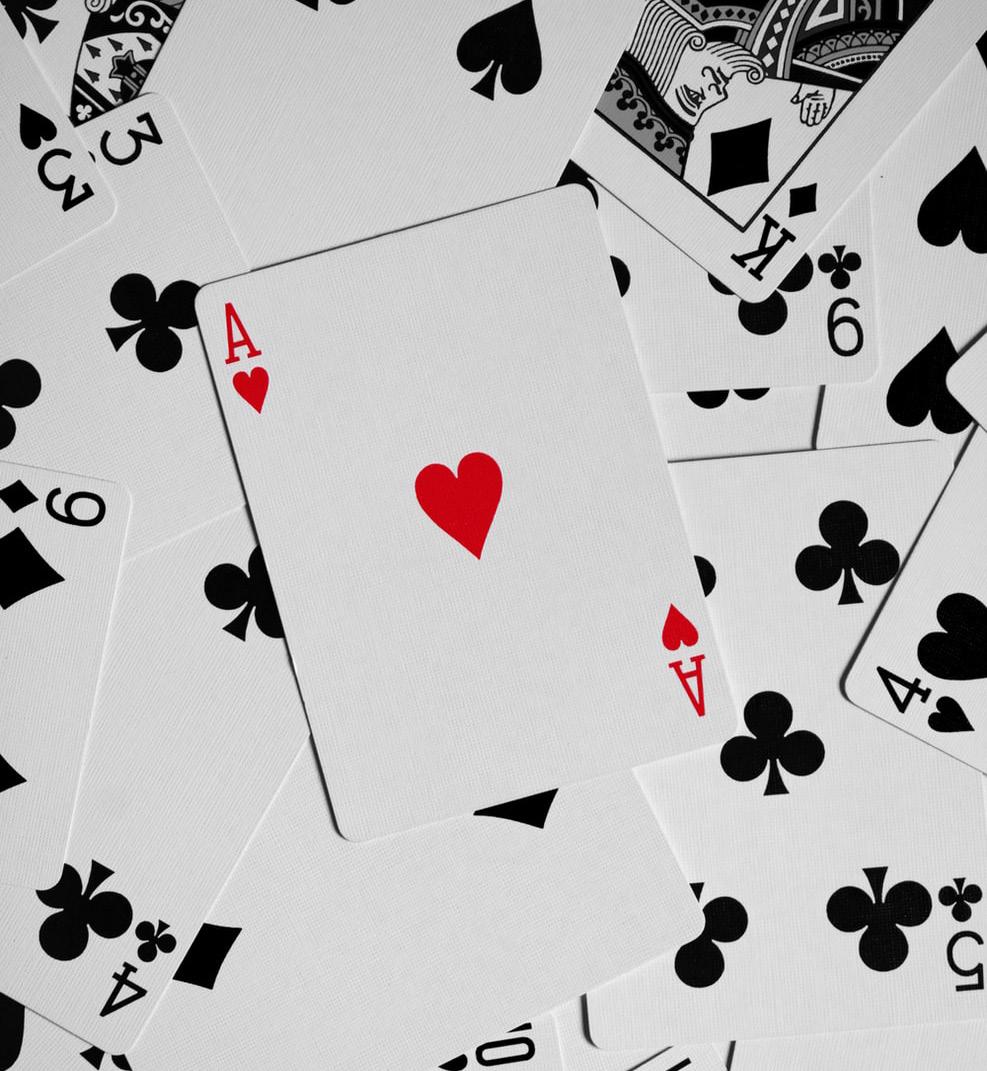
29 minute read
Gatekeep- ing Art
Gatekeeping Art - Preserving or Decaying Vintage Music
Mayumi Ramos ARTS AND CULTURE
Advertisement
Finding hidden gems is an obsession and one of the greatest pleasures of music fans. To me, there’s nothing more satisfying than going down a Spotify or YouTube rabbit hole and stumbling across an amazing song from an artist with monthly listeners in the quadruple digits (the lower, the better). Suddenly, you’re playing it on repeat and combing through their discography. Months later, to your dismay, you find that same song on a Spotify-curated playlist with 700,000 followers—or worse, a snippet of it becomes a viral audio on TikTok—and your satisfaction that stemmed from that pristine, untouched song that was so exquisitely yours, that hidden gem you worked so hard to find, is now in the ears of millions of people Maybe we derive some kind of glory from discovering an artist while they’re still unknown because it gives us a sense of validation—not only are we so brilliant at identifying talent, but we deserve to enjoy and indulge in these hidden gems because we worked oh-so-hard to find them. Or perhaps we delight in the esoteric quality of that music and being part of its limited audience. Only a small number of people even know about this music, much less enjoy it—so I must be on an entirely different plane of individuality. A prime example of this line of reasoning is the obsession of “Obscurify”, a website that determines how obscure (or basic) your Spotify listening habits are, in some music circles, and especially on certain subreddits (looking at you, r/indieheads). Sure, we might poke fun at music snobs who ask people wearing band shirts to name three songs, but we can’t deny that there’s an “inner hipster” that lies inside of us all. So when our favourite obscure song or artist blows up, it’s easy to take it almost as a personal attack. Are we really original if the music is accessible to so many other people? We jump to rationalization and defense: Well, it doesn’t matter—they’re just jumping on the bandwagon. I listened to them before they were cool. There’s a thin line between taking pride in your music taste and making it a personality trait, and it’s one that I oscillate between. I won’t lie, I’m the type of person who posts songs on my Instagram story; the type who has their Spotify linked in their bio. I’ve inextricably linked my identity to the music I consume, which is probably why I can sometimes get possessive over it. Everyone needs to know I have a good taste in music, but god forbid the songs I listen to actually go viral. But why are we so possessive over something as seemingly trivial as music taste? Maybe it’s because it isn’t so trivial after all. Music is often deeply personal—we tend to like the songs that we like because it resonates with us in some capacity, especially emotionally. When that music reaches a broader, more expansive group, we become territorial because it feels like a personal infringement of our identity. That being said, I don’t think gatekeeping is so much an actual active effort to prevent the spread of music, but more so a manifestation of the desire, however futile, to keep the things dear to us safe. We want to protect our music from the masses who just won’t “get” it on the same level we do—from harsh critics who will coldly and unsympathetically pick it apart. We want to preserve its perfect, unspoiled qualities, or at least the perception we have of it, and gatekeeping is just a means to that end. When Pitchfork gives your favourite new album a 5.7, or when Anthony Fantano proclaims it’s merely a “light to decent 6,” or even when you read offhand YouTube comments, it’s easy to either get a bit irritated or to doubt your own opinion, even just a little, no matter how hard we try to stick to our convictions. Gatekeeping is simply a prevention tactic—a method of averting that dreadful moment when the image of music we cherish and are trying to protect is altered or muddied by the opinions and analyses of others. There are more tangible consequences of a smaller artist blowing up. In early 2018, I went to a Billie Eilish concert with my best friend. The tickets, which were floor tickets, were a whopping $21. Now, the cheapest nosebleed seats are upwards of $50, with floor tickets hovering in the thousands. In addition to the skyrocketing of concert ticket prices, artists tend to gravitate away from their original sound in favour of a more accessible sound to attract a wider audience. Being happy they’ve achieved mainstream success and exposure while simultaneously feeling a bit disappointed (and admittedly, frustrated) is an internal conflict that I still don’t know how to resolve. As much as I want to root for my favourite artists, there’s a part of me unwilling to “let them go” or to let others delight in my best-kept secret. Nevertheless, gatekeeping music ultimately sacrifices the delight you get from sharing songs with others. In my opinion, it’s completely valid to protect your music from the reach of the masses, as that often comes with harsh and unemotional criticism. But sharing a piece of music that you cherish (even if it isn’t obscure) with someone special rewards you with a unique sort of intimacy—it’s magical to experience that enjoyment and delight with someone else. I remember when I introduced The Divine Feminine by Mac Miller to my boyfriend and he just got it—we spent a while gushing about how good it was and talking about our favourite parts, and he pointed things out that I had never even noticed before. Or when one of my closest friends was experiencing a painful breakup, so I recommended Crushing by Julia Jacklin to her. It was validating to read her text about how cathartic it was to listen to lyrics that perfectly encapsulated what she was going through. To hide your favourite music is to preserve it in its most pure form to be enjoyed by only you, free from outside judgment. But this so-called safeguarding of music comes with a price: the emotional connection you get from sharing it. Music is meant to be shared, listened to, and enjoyed—isn’t that part of the reason why artists make it in the first place? Ironically, the real outsiders are the ones who participate in the gatekeeping of music and relish in the exclusivity of it—they’re missing out on the intimacy and connection of shared listening.
The Curtain Calls: Broadway’s Post-Pandemic Comeback
Celine Hajj Sleiman ARTS AND CULTURE
Theatre goers and musical lovers mourned the loss of Broadway, as all 41 theatres fell victim to the necessary COVID-19 closures following the outbreak of the pandemic. Though the initial green light to reopen in September was given by the state in May 2021, it seemed an unlikely prospect in the face of vaccine hesitancy and the beginning of an aggressive new Delta variant. Yet those who doubted were happily proven wrong. This September marked the return of musical theatre after the longest shut-down in New York City’s history—a symbol of hope after 18 months of solitude. The Phantom resumed its 32-year haunt in Broadway’s longest running show, The Phantom of the Opera, Simba returned to reclaim his throne in Disney’s The Lion King, and Orpheus journeyed back to the Underworld in the award-winning Hadestown, which continues with its original cast after making its Broadway debut in 2019. Other returning shows include classics like Wicked, Chicago, Moulin Rouge, and Hamilton. Under the condition of full vaccination or proof of a negative COVID-19 test result, most theatres are accepting audience-members at full capacity, but Broadway’s grand return is not so easy as simply reopening the doors. The Broadway League’s box office data reveals that attendance is at less than 80 percent capacity. Considering the lingering effects of lockdown culture, as well as the dwindling number of tourists—who typically make up two-thirds of Broadway audiences—these challenges, while not unexpected, do beg the question: Is Broadway’s exclusivity no longer viable in a post-pandemic world? Live theatre has always been a unique experience—the surge of music, the entrance of a well-loved performer, the infectious roar of applause. There is a unique kind of awe that follows witnessing something so perfectly executed—a refreshing entertainment in an age that has been redefined by isolated streaming. Theatre performance is arguably more demanding than acting in front of a camera, where mistakes can be erased, and more thrilling than any cinema, where the exact same performance is a guarantee.
But the effortless mystique of a live show is hardly achieved without effort. Theatre relies on a tireless cast and crew whose occupation demands they work at least 6 days a week. It is not a mass-distributed entertainment but a near-tangible adventure and the effort that goes into every show is reflected in the cost of a ticket. Ticket prices— though relatively unchanged from before the lockdown—are still expensive, ranging from $30 to $400, depending on the show and the seating. With tourism in New York at an alltime low and COVID-19 restrictions complicating travel, it is difficult to imagine a theatre reaching its maximum capacity. Yet, it is equally difficult to imagine a world in which live theatre is obsolete. After Broadway’s shutdown, thousands of arts and entertainment workers lost their only source of income and were forced to rely on unemployment benefits or charity from organizations like The Actors Fund. Broadway’s closure also marked the temporary stop of an economic engine. According to the U.S. Bureau of Economic Analysis, arts and cultural activity accounts for 4.5% of the country’s gross-domestic product. Theatre is more than a historical staple of New York City, it is also a determinant of livelihood for those who have dedicated their lives to its craft. Theatre reporter Michael Paulson describes Broadway as “a sort of barometer of the city’s health. With Broadway closed, New York appears to be ailing. With Broadway reopening, recovery seems possible.” Though attendance numbers are not as high as they could be, this is not an indicator of a dying art but rather an accurate measure of a city that is still healing—a city that will need its arts to do so. Broadway’s reinvigorating effect was undeniable from the audience’s reactions to their favourite musicals finally returning. On the night of its reopening, The Phantom of the Opera crew carried the celebration out to the street. The audience left the Majestic Theatre to find Andrew Lloyd Webber, the musical’s composer, in a DJ booth playing club remixes of Phantom classics, while chorus members danced on the marquee behind him and the gathering crowds cheered with delight. The cast of Hadestown had a similar idea and held a sing-along from the balcony of the Walter Kerr Theatre, with the audience spilling out into the street and leaping to catch the red roses being thrown down by the crew. Lin Manuel Miranda, who wrote and starred in Hamilton during its original run, surprised the audience on the night of its reopening with a heartfelt speech welcoming them back to the Richard Rodgers Theatre. He thanked everyone for getting vaccinated and asked, “I don’t ever want to take live theatre for granted ever again, do you?” which was met with a resounding no. Rightfully so. In the shadow of the COVID-19 pandemic, the world has certainly changed, but there is reassurance to be found in the arts and reassurance of humanity’s simplest self. We seek stories and beauty, intimacy and connection. There is an authenticity to live theatre that cannot be replicated in other forms of entertainment or replaced by a recording on a silver screen. Though a complete recovery may be gradual, Broadway’s return is nevertheless a great triumph for our beloved human arts.

Let’s Talk About Sex!
Jessica Khorana ARTS AND CULTURE
When you hear the word “sex,” your mind probably flashes to scenes from Fifty Shades of Grey or the Riverdale kids going at it like rabbits (seriously, where are the adults on this show?), or Samantha regaling the rest of the girls with her latest exploit on Sex and the City. But contrary to how it’s portrayed in the media, sex isn’t just quickies in the backseat of a car (which is extremely uncomfortable) or the “perfect” fairytale moment where you finally lose your virginity. It can be messy, or romantic, or painful, or all of those things! The great thing about having sex portrayed in the media is that it normalizes the topic to kids and opens up discussion, rather than shrouding it with words like “taboo” and “dirty.” That being said, how does the media influence our attitudes towards sex? How young is “too young” for to be exposed to the idea? Do shows like Gossip Girl and Bridgerton set unrealistic expectations for sex and encourage insecurity? In order to find out, I interviewed a random group of students at U of T for their thoughts on sex and the media, and the responses were very revealing. Interestingly enough, I found that of the students interviewed, about 61% reported always seeing references to sex in the media, with only 33% claiming to see references to sex in the media often, and a measly 5.6% that reported seeing references to sex sometimes. In addition, 50% of participants responded that they had learned about sex between the ages of 9-12. When asked about how they learned about sex, the majority of students responded that they had learned through popular media (i.e. reading books, watching TV and movies) and talking with their friends. Despite learning about sex at what is arguably a young age, around 61% of individuals stated that sex was never actively discussed in their households when growing up, with one participant claiming, “[Sex] wasn’t shamed or discouraged, but it was never explicitly talked about.” Based on this data alone, it seems as though the only form of sexual education that our generation received was through a silver screen or the pages of a raunchy novel read underneath the covers. With this in mind, you would think that this would have muddled our perceptions of sex or created an idealized version of what sex should be. However, what we find is the exact opposite! When individuals were asked about what they believe sex is or should be, all the responses consisted of positive, healthy interpretations that went beyond a heteronormative lens. For instance, one individual expressed, “Sex can be so many things — exploring your sexuality, self-pleasure, partner sex, etc. Experiencing pleasure or helping another feel pleasure can all count towards sex.” Another participant stated that in their journey to unlearn unrealistic and potentially harmful expectations surrounding sex, they were “avoiding rigid boundaries and letting sex present itself in whatever form feels authentic, safe, and pleasurable.” In the absence of formal education on the topic of sex, exposure to the subject — even through glimpses of Cosmopolitan or steamy scenes on TV— may have actually allowed kids to learn enough about the topic to be comfortable with it and develop a more sex-positive attitude. “Sex is something that can be amazing and desirable but can also be dangerous depending on the context,” one participant wrote, “Sex is a very vulnerable act, so I believe that sex, as much as it should be pleasurable and exciting and adventurous, etc., it must also be safe and comforting.” As we can see, even though popular media has had a significant influence on our views on sex and sexual identity (according to 55.6% of those surveyed), this hasn’t necessarily been a negative or damaging influence. Being informed no matter what the means is what prevents individuals from making poor choices and putting themselves in harm’s way — not knowing about sex can lead to unsafe sex. While I can understand the desire of some parents to avoid the ensuing awkwardness of having “the talk” with their kids and their desire to have to think about their child ever having sex, the complete lack of acknowledgement towards the subject and subsequent stigma can do substantially more harm than a ten-year-old hearing a sex joke on Friends. Personally, I find myself relating quite strongly to the experiences described by those surveyed. Growing up as the eldest daughter in an Indian-Canadian family, the word “sex” was never so much as breathed in our house. Likely resulting from a combination of fierce overprotectiveness and millennia of Indian parents that thrived on arranged marriages and shaming any sexual act, my parents never so much as even mentioned dating and sex. In fact, in my almost twenty years of age, I have never actually gotten “the talk.” And while some of you may be laughing uproariously at this or envious of the fact that I never had to sit through my mother attempting to explain to me how to put on a condom, when combined with the fact that the only form of sexual education my highschool provided was a five-minute lecture on abstinence and a phallic object aptly named “Woody,” I would have been completely oblivious to sex had it not been for the media. Being exposed to shows and movies where sex could be casually discussed and reading books and magazines where it was depicted as “healthy” and “normal” helped me to understand and establish my own sexual identity and realize that sex wasn’t something that was “wrong” or “taboo.” What I’m trying to get at here is that even though it seems as though sex is everywhere we look — in the songs we listen to or the shows we watch — in a society where most parents still (unconsciously or purposefully) condemn the idea of sex when it comes to their own children, these shows and movies and books are useful resources for kids to normalize sex and can potentially obtain a healthy depiction of what sex is.

Everything Is Fine
Ke Xu CREATIVE
The age-old question has finally been answered: we are not alone. Things aren’t looking great in the long term, but we’ve learned to take things day by day and appreciate the little things in life. On the bright side, the world has never been a more fair and equitable place to live. It’s been a year since the first explosive missile hit the surface of the Earth, in the middle of the Atlantic Ocean. No one realized the magnitude of what had happened until two months later when another one was dropped, this time in Central Africa. Chad was devastated, and its bordering countries settled into a state of mass chaos. Of course, nobody really cared about the second missile either, but it was more of an inconvenience than the first, especially for ExxonMobil stakeholders who had suffered financial losses from the temporary disruption of crude oil exports. Fortunately, as many oil reserves were protected from impact debris, the employees in Chad were soon able to reboot the mining process. It wasn’t until one of the missiles landed about five hundred kilometres off of the coast of San Francisco that the case finally garnered international media attention. At once, the United Nations Security Council gathered in New York City to convene and debate about the fate of the world. Not 20 hours later, the alien attacks were declared an international emergency, and the entire world began to shut down. Seafaring was first to go, followed by air travel, and then finally all cross-border mobility. The governments of the six great powers had deemed all forms of recreational travel unnecessary and unsafe, and the world had successfully entered a state of quasi-siege. To investigate the origin of the attacks, the American government sent a research team to Chad. Unfortunately, the missile was still active at the time and went off again, taking the lives of the twelve esteemed scientists. This saddening news was broadcast all throughout the world; the brave individuals were immortalized as martyrs of the human race. The programme was especially popular in China, a country that had not yet received one of these missile attacks, but would come to do so in the months ahead. Undeterred, the United States continued to investigate the nature of the invading forces. Not to be one-upped, the United Kingdom would soon launch its own task force, scattering deployments over the next six months. Initially, the governments were quick to point fingers at none other than infamous North Korea. After all, the nation already held both the technology to make nukes and a long-standing vendetta against every other nation of the world. What’s to say that they hadn’t spent the past decade developing a more targeted and less environmentally destructive version of the atomic bomb? The world was up in arms. North Korea, as always, remained nonchalant. The cold war continued to brew until about a month ago when the aliens decided to really go all offensive on us. No one saw it coming, or, at least none of the powers. South Africa had mentioned during one of the conferences that the missile attacks seemed to hint at a looming crisis, but the others just laughed. Our alien neighbours seized this opportunity to get a head start. During the eighth deliberation session, they climbed out of the Pacific Ocean and began to abduct college students from the campuses of the American West Coast. The President of the United States immediately assumed martial law. To his surprise, this tactic was unsuccessful. The aliens spread out and started to abduct people from all over the country. Initially, it was discovered that the aliens were targeting people who were living or travelling alone. Upon further inspection, it appeared that diverse communities were the least likely to be affected by the alien abductions. As this news broke out, Americans, out of fear for their own safety, warmed up to other races and ethnicities. Black Americans, White Americans, Latin Americans, Asian Americans, and Native Americans formed communes where they would live together under the protection of mutual acceptance and peace. Racism was now gone. Gone were the days of discrimination, of racial slurs, of hate crimes. Everyone depended on one another, and there was no sense in hating someone who could keep you alive. Even the most outspoken racial supremacists had either learned to bite their tongue or had already been abducted. All in all, not a bad day for racism. That brings us to today, one month into communal living. The government is still trying to figure out what happened to the people who have been abducted, but their efforts are futile. The only way to protect ourselves is to continue accepting and tolerating others. Everyone has the same opinion now, the same correct stance on the politics of skin colour. If anyone tries to revert back to our archaic racist ways, they will be immediately kicked out of their commune and not allowed to return. Nobody knows where these people go after they are forcibly removed. The only thing that everyone else knows is that once someone is kicked out of the shelter, they are never seen again. In certain areas of the United States such as in the Midwest, Black, Asian, and Native Americans are very scarce. People have been forced to take over schools, churches, and shopping malls, creating giant communities with only 2 or 3 people of colour each. Minority families are separated and placed in different communities to balance out the ratios as much as possible. No one has complained or protested against this, and why should they? Obviously keeping people alive is more important than keeping families together. Everyone agrees. Everyone agrees on everything nowadays. Since much of the Midwest is wildly rural, these communities are often miles apart, but human lives are more important than individual desires. People of colour should be concerned about the well-being of white Americans too. How could they live with themselves if they took a risk to go and visit their family, only to return to the commune to find 2000 of their friends gone, abducted by the enemy? Colour should be meaningless, but the aliens clearly do not agree. Therefore, it is an unfortunate but necessary reality that every community needs people of colour. With great power comes great responsibility. In more conventionally diverse areas such as metropolitan New York, people of colour have a little more flexibility in who they choose to reside with. Large cities generally contain a majority liberal population, and people of all races had already lived in harmony for decades leading up to the invasion (other than the shootings, but we don’t talk about that). Nothing is supposed to change, right? We all agree that people who discriminate pose a great danger to society, and therefore should be promptly removed from the vicinity of people who are actually trying to survive. On the other hand, human lives are more important than individual comfort, and in areas of the city such as Washington Heights and the Bronx, white Americans are now being actively sought after to ensure the safety of the majority POC population. By now, options are pretty slim, and it’s too often that citizens of poor areas with a smaller white population must settle for roommates who may be most accurately described as rather undesirably tempered. Fortunately, compatibility isn’t the end all be all anymore. Some things must be sacrificed so that we can all live to enjoy life. Isn’t life swell? Now if the aliens would just stop attacking us. People have always said that the only way to achieve world peace is for aliens to invade Earth, and I think that we’ve finally proven them right. Everyone is so happy now! We are all equal. Politics are redundant. There is no more need for violence and crime. Everybody lives every day in codependent harmony. Racism is gone, people get along much nicer, and best of all, everyone agrees on everything.
On The River
Eva Chang CREATIVE
A/N: June is a nonbinary character, and they are referred to using they/them pronouns. “Camp and tragedy are antitheses. There is seriousness in Camp… but there is never, never tragedy.” — Susan Sontag, “Notes on Camp” The two never established any dressing protocol, though they intended to beat each other in style every time they hung out. Agni, lavishly decorated with lace, soft like a painting. June, adorned with silver, sharp like a photograph. The two’s fashion choices, more often than not, were respected, yet scorned, by the other. They joked from time to time that they broke up for this sole reason. Though it nonetheless seemed to be half the reason they got together to fuck these days.
“I like your outfit,” June remarked, eyeing Agni up and down. He wore a white shirt, ruffled along the collar and the sleeves, and unbuttoned one more button than it really should have been, exposing a neck decorated with layered pearl chokers and necklaces. It would have been a histrionically awful shirt, if not for the pattern of the ruffles imitating that of an Iris Van Herpen design. He sported dress shoes and brown trousers, his shirt half-tucked in at the high—waist beltline. Agni stood at the opposite end of the door, the distance between them emanating a palpable emptiness. Still, he grinned, lifting up the takeout he brought to eye level—a plastic bag stamped with overlapping red “thank you”’s—with flair, hitting different poses as if he were modelling a purse. “You too.”
June hummed in confirmation, looking down at their sweater. It was black but nearly sheer and ripped and shredded across the body. Safety pins and charms adorned it, chains criss-crossing along their chest. A simple silver-lock necklace wrapped around their neck. Multiple belts adorned their waist and stacks of silver rings were placed meticulously on their long, thin fingers. Black ribbons decorated their ankle socks. The clothing was both a shield and an invite—come undress me. I dare you. I bet you can’t. June motioned Agni to come in. Agni knew exactly where to sit: the left side of June’s beaten up brown couch, where he’d always settled. June’s cozy apartment glowed with purple light. “You’ve decorated,” Agni said, looking at the fairy lights draped over the back wall window. The lights were stuffed into empty orange pill bottles. Another one of June’s depraved DIY projects. “Nice.” “Why, thank you.” “How have you been?” June, meanwhile, poured out two glasses of wine. They passed one to Agni before settling down on the far right side of the couch. Swallowing, Agni picked up his wineglass, taking a large sip. “Saw my sister today.” “Is she getting better?” “Yeah, the symptoms are definitely going away. I just wish I could’ve stayed longer.” “But it was good to see her?” Agni smiled, and it said everything that it needed to. “Ah. I’m glad.” While Agni downed the rest of the wine, they took the time to revel in the silence, which felt like a newfound joy in their reborn relationship. June reached under the coffee table and pulled out a large wooden box.
that?” Agni furrowed his eyebrows. “What is
“Well. We’re two insufferable switches and we don’t know how to make up our minds, and I thought the idea of competition might make us more horny. Because we’re depraved.” Opening the box revealed a deck of cards and a set of neatly placed-together poker chips. “Texas hold’em. Whoever wins gets to be in charge tonight.” “Sexually?” “Sexually.” Agni stared June straight in the eyes. “Okay, you’re on. I’m gonna win, though.” June, accustomed to such bravado, shot back a ‘we’ll see’ glance and took out the box’s contents. “Just promise to not go all in immediately. Let’s at least try to make this fun.”
“That’s what she said.” June looked straight at Agni in pure judgement. Without a change in expression, they pressed their middle and pointer fingers against their lips, sticking their tongue out and flicking it up and down between their fingers. Agni laughed, the ruffles on his shirt sleeves bouncing in unison with his shoulders.
It had been that back and forth from before the breakup. That push and pull. That banter. “Okay. I’ll be big blind, you be little blind. Check.” June put two white chips between them. “Call.” Agni put two in as well. Check, check. Agni raised conservatively and won when the two revealed their cards: two pair, high card. June, fueled by revenge, raised higher the next round, with their bluffing tactics effectively making Agni fold. Grinning, June took the chips in the middle and brought them to their side of the couch. “Raise fifty. Someone’s in a good mood,” Agni remarked. June grinned, mordantly. “Bro. You’re missing out on all the times when it hurts real bad.” Staring up at their pill string lights, June absent-mindedly placed in a couple more chips. “Fun fact, but you make me feel good.” They tugged on the chain around their neck, before bringing their arms across their chest, hiding its holes. Agni, meanwhile, fondled his chips, turning them over in his palms. “You do too.” The two of them hesitated, but it was not a hesitation marked by the thought of ‘you mean nothing to me.’ It was more so a ‘you can’t mean this much to me. Not anymore.’ “All in,” Agni finally said, pushing his chips to the center. June cocked their head. “What? You said give it a few rounds. It’s been a few.” June fondled with the two cards they had, contemplating whether their hand was strong enough to beat out such a confident wager. They didn’t take long to also push their chips in, almost as if they could read Agni’s mind. The two flipped their cards over, and June’s hand won over Agni’s by a landslide. Agni sighed in defeat, though more so for dramatic effect than any disappointment. He flung his cards down and put his hands up. “Alright, you win.” Slowly, June leaned across the couch, their silver jewelry jingling with their movement. Fuzzy from wine, Agni soaked up their image, letting June part his collar. June grinned, sitting back down more quickly than they had leaned forward. They brought all the chips into their arms, pulling them towards their side of the couch. “I win.” June took no time to leap forward again and pin Agni down by the wrists. They were a tangle of fabric and skin, June on top of Agni, planting kisses along his neck. It wasn’t long until the two began to undress.

CROSSWORD ACROSS
COURTESY OF RISHIBH PRAKASH

MASTHEAD
EDITOR-IN-CHIEF
Olivia Fraser
MANAGING EDITOR
Drew-Anne Glennie
ONLINE EDITOR
Catherine Dume Stephanie Lee (Junior Editor)
SOCIAL MEDIA COORDINATOR
Josie Meza Silva
CREATIVE DIRECTOR
Angelina Zahajko
COPY EDITOR
Ursheille Vasantharaj Mackenzie Da Silva (Junior Editor) Yash Kumar Singhal (Junior Editor)
LAYOUT EDITOR
Linda Chen The Innis Herald has given a voice to the students of Innis College and the University of Toronto since 1965. We circulate 1000 copies of our paper to Innis students, alumni, faculty, and anyone else who happens to come across it. We are committed to covering stories that matter to students. Our content aims to help students connect to their college, campus, city, and world. FOLLOW US! @theinnisherald
CONTRIBUTORS
Angelina Zahajko Catherine Dume Kyle Newcombe Kiran Basan Mackenzie Da Silva Mayumi Ramos
Aminah Naseer Ke Xu Celine Hajj Sleiman Jessica Khorana Eva Chang Rishibh Pakash 1. Best place to hide something (2, 5, 5) 9. A rock’s nemesis (5) 10. Arthur’s wife (9) 11. Overshadow (sometimes literally!) (7) 12. Joins (7) 13. Forced into a situation (10) 15. Just (4) 18. Fight (but not one amongst Hindus!) (4) 19. Biological communities (10) 22. Space probe sent to study Saturn in 1997 (7) 24. Easily passed by (7) 25. Dummy (9) 26. French exclamation: “____ bleu” (5) 27. Go in a different direction (6, 6)
DOWN
1. Acting on a whim (9) 2. Sweat (8) 3. Could be right or obtuse (5) 4. Silent (9) 5. Values (6) 6. Takes note of (5) 7. Come out of nowhere (6) 8. There’s a new one in the US (6) 14. 1/60 of a degree (9) 16. Author of Beyond Good and Evil (9) 17. One who evaluates the quality of goods (8) 18. Turn into (6) 20. Upset (6) 21. Passengers and messengers (sing.) (6) 23. Electronic musical instrument (abbr.) (5) 24. String instrument (5)






